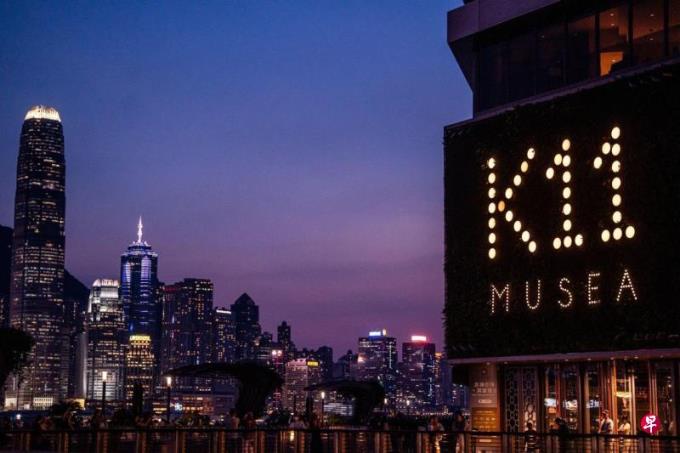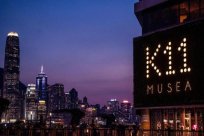
Following the debt crisis of real estate companies in mainland China, the real estate industry in Hong Kong has recently emerged in debt problems.Many real estate developers have reduced prices to sell first -hand residential units, as well as the residential property assets on their hands.
The performance of the Hong Kong economy was still weak for one year after the epidemic, and the rental market and retail market of office buildings were bleak.Among them, the 1881 Heritage of Tsim Sha Tsui held by the Merchant Merchants Group, which was once a shopping paradise for tourists in mainland China, attracted many high -end consumers.However, due to the weakness of retail roads, more than 30 shops in the shopping malls are still operating.
The same situation also appeared in the nearby landmark business districts such as Guangdong Road and Russell Street, Causeway Bay.Bloomberg quoted the real estate agent pointed out that a shop was originally rented by Omega on the Guangdong Road. The monthly rent was as high as HK $ 7.5 million (S $ 1.26 million), and now it has reduced the price by 80%to a bank;The rent also fell 89%from HK $ 8.8 million in 2019. It was rented to a restaurant with the theme of Transformers, which reflected in the trend of the market's atrophy, and the rental pressure faced by merchants.
The online media "Hong Kong 01" reported in March this year that the performance of the four major real estate developers in Hong Kong showed that the debt ratio of the two of them was on the rise.As of the end of 2023, The proportion of debt liabilities rose to 49.9%Compared with the middle of last year, 2.2 percentage points, the ratio is the highest among the four major real estate developers; Sun Hung Kai Real Estate also increased by 3 percentage points to 21.2%.The minimum debt ratio was Changshi Group, only 3%; Hengshi Real Estate's liability ratio in the past half of the fiscal year fell by 1.4 percentage points to 22.6%.
Economic prospects are unclear, continues to fall In terms of high bank interest rates, more and more Hong Kong real estate developers are facing increasingly heavy debt crisis.The development of the new world issued a profit warning last week, referring to a loss of 19 billion to 20 billion Hong Kong dollars throughout the year, the largest loss in more than 30 years.
In order to improve the company's liabilities, many real estate developers in Hong Kong, in addition to the reduction of dividend festivals, have also recently scrambled to "big split prices" to promote the new market in exchange for funds to return quickly.Jiahua led the "Kai Tak Bay" of Defeng Real Estate and China's overseas cooperation. On Monday (September 2), it announced the update list, increased multiple payment methods, and raised the basic discount to 25%.Of these, 50 units also provide additional discounts, with a maximum discount increase to 38.5%, and the price is sold in disguise.
Asked whether the price reduction is sold at a loss, Wen Weiming, the director of Jiahua International Marketing and Market Planning (Hong Kong Real Estate), said that the new payment plan and discounts will be launched this time.Cash back funds find another investment channel.
Other real estate developers have sold their property assets for emergency.Market news said that the rich industry trust and rich hotels intend to sell six urban hotels in the ICLUB (Fuhui Hotel), with a total of 1411 hotel rooms, with a market valuation of about HK $ 10 billion.
Earlier, some media also pointed out that the K11 Art Mall (K11 Art Mall) under the World of New World was negotiated with China Resources Rongdi and bid at HK $ 9 billion.In addition, there is a Chuanli New Development Company to sell the Valley Park Marriott Hotel, which is held, or as high as HK $ 5 billion.
As the United States is expected to cut interest rates in September, there is a voice in the Hong Kong industry that the prospects of real estate companies should not be too pessimistic.The recent research report released by HSBC Global believes that there will be other favorable factors to be reflected in the stock price in the future, and it is believed that real estate stocks are not over.The report pointed out that strong yen may reduce the willingness of Hong Kong people and mainland residents to travel to Japan to promote them to stay in Hong Kong for consumption;REL = NOFOLLOW TARGET = _Blank> Strong RMB may also suppress Hong Kong people to consume north. , thereby benefiting urban shopping malls, and the decline in borrowing costs, which are beneficial to real estate stocks.
However, in an interview with the United Zard of Hong Kong, Shao Zhiyao, a senior investor in Hong Kong, believes that even if the US interest rates cut, Hong Kong will immediately follow the interest rate reduction.In addition, one of the favorable factors of the Hong Kong property market is still high rental return, which can attract some investment customers to enter the market.However, with the continuous deterioration of the Hong Kong economy, recent industries have reducing salaries or even layoffs. "Once the income of wage earners falls, the return on rent will also decline, and it will affect the decline in property prices.
Shao Zhiyao pointed out that some real estate developers in Hong Kong have actively expanded their business in their early years and borrowed them too much from banks.At present, bank interest rates are high, and the sales of residential units are not ideal, which has made some small and medium -sized real estate developers facing great debt pressure.Recently, companies with mainland backgrounds have begun to take over the property sold by real estate developers in Hong Kong, reflecting that in the future, mainland companies will slowly occupy the Hong Kong real estate market.


